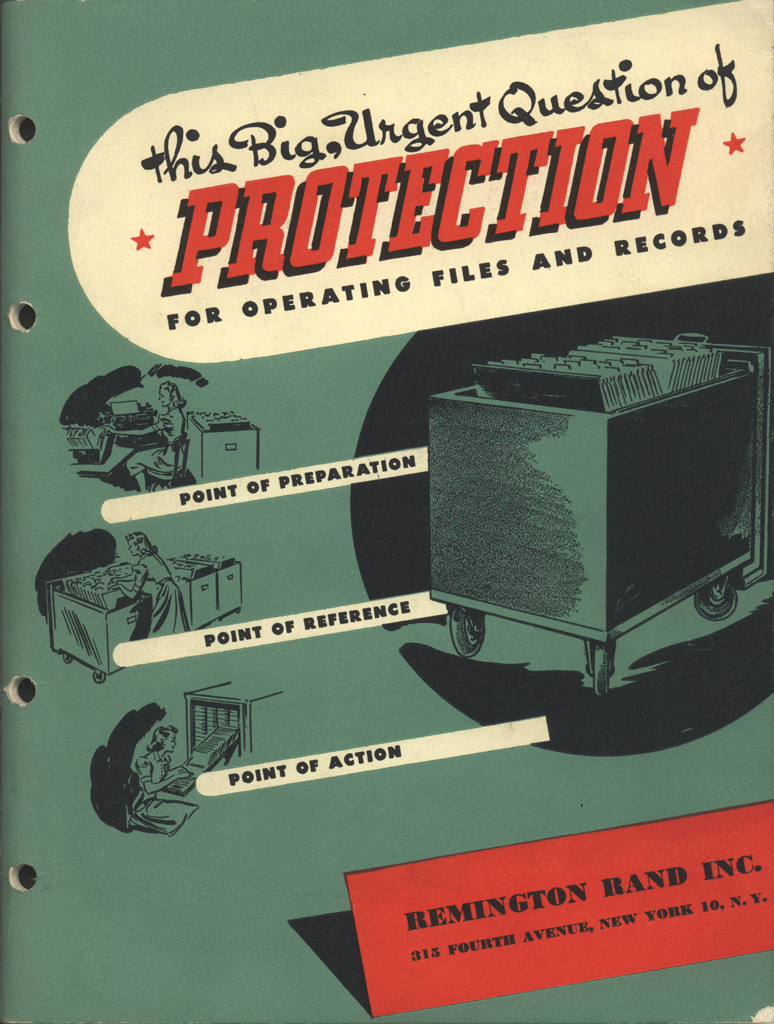filing
Files and Folders Before Computers
Filing Cabinets, a Neglected Piece of Business History, by Linda Gross, the Hagley Library:
Dr. Robertson is an associate professor of media history at Northeastern University. He explained to us that he is currently researching the early history of the filing cabinet (1890s-1930s). Robertson contends that the filing cabinet has been largely neglected in the history of information technologies, with punch card machines (a clearer precursor to computers) taking a leading role in histories of early 20th century information technologies—this despite the importance of “files” and folders” to how we organize information on computers.

“This Big, Urgent Question of Protection for Operating Files and Records,” Remington Rand Inc. brochure, ca. 1948, Hagley Digital Archives.
(Revised and republished April 2nd, 2025)
Gladwell on the Social Life of Paper

Paper strips shown at faa.gov (Wayback Machine link)
Malcolm Gladwell’s 2002 article on paperwork at The New Yorker.
“The Social Life of Paper” (Wayback Machine link)
Gladwell.com link: http://gladwell.com/the-social-life-of-paper/ (Wayback Machine link)
It is only if paper’s usefulness is in the information written directly on it that it must be stored. If its usefulness lies in the promotion of ongoing creative thinking, then, once that thinking is finished, the paper becomes superfluous. The solution to our paper problem, they write, is not to use less paper but to keep less paper. Why bother filing at all? Everything we know about the workplace suggests that few if any knowledge workers ever refer to documents again once they have filed them away, which should come as no surprise, since paper is a lousy way to archive information. It’s too hard to search and it takes up too much space. Besides, we all have the best filing system ever invented, right there on our desks — the personal computer. That is the irony of the P.C.: the workplace problem that it solves is the nineteenth-century anxiety.
(Revised and republished April 3rd, 2025)